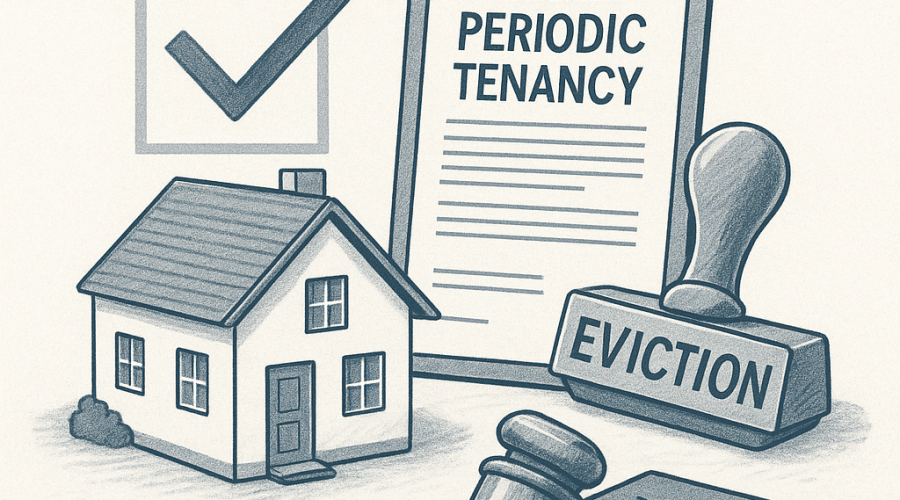Renters’ Rights Act 2025
What the Renters’ Rights Act 2025 Means for Let-Site Operators, Investors & Landlords
Date: 14/11/2025
The private rented sector is about to go through some of its biggest changes in a generation. The Renters’ Rights Act 2025 (RRA) introduces 12 major reforms that every landlord, property developer, and short-let operator needs to be aware of — especially as you’re working with holiday lets, short stays, and portfolio properties.
Here’s a practical breakdown of what’s coming, what you should be doing now, and how you can stay ahead of the curve.
1. The New Assured Periodic Tenancy
From the RRA’s commencement date (expected in 2026), the default tenancy type will change: no more fixed-term assured shorthold tenancies (ASTs) for most cases.
Key implications:
- Landlords will not be able to let a property on a fixed term under the usual assured tenancy regime.
- Tenancies will be periodic (e.g., month-to-month) if rent is paid monthly.
- Notice: tenants can give two months’ notice at any time (or shorter if the agreement allows) from day one of the tenancy. Action point: If you currently structure your letting agreements with fixed-terms (6-12 months), you’ll need to review your contracts. Even for short-stay/holiday-let settings (where license models might apply), check how these changes impact your legal standing or if a different model (licence rather than assured tenancy) should be used.
2. Abolition of Section 21 “No-Fault” Evictions
One of the most headline-grabbing changes: the RRA abolishes the right under Housing Act 1988 Section 21 to evict tenants without any fault.
What this means:
- From the commencement date onwards, for assured tenancies, you’ll no longer be able to rely on Section 21.
- For any served notices under Section 21 already, there are transitional rules — but you must act carefully. Action point: You’ll need to lean more on Section 8 (fault-based grounds) or other lawful mechanisms. Ensure your internal procedures and templates reflect this. Given your short-stay/holiday-let context, clarify whether a licence rather than assured tenancy would be the appropriate vehicle.
3. Changes to Grounds under Section 8 for Possession
The Act makes revisions to the grounds for possession under Section 8 — both introducing new ones and adjusting existing ones.
Important details:
- Notice periods for certain grounds (such as serious rent arrears) are increasing (e.g., arrears of 3 months rather than 2).
- New mandatory grounds: e.g., if you wish to sell the property, give a 4-month notice in certain circumstances. Action point: Update your possession policies and check your templates. For properties that operate as holiday lets, determine whether any occupancy/licence terms apply rather than standard assured tenancies, and check how these changed grounds may apply.
4. New Procedure for Increasing Rent
The Act introduces a stricter process for rent increases under the assured tenancy regime.
Key features:
- A landlord may only increase rent once a year, via the procedure under Section 13 of the Housing Act 1988.
- Two months’ notice is required.
- Tenants can challenge the increase free of charge at the First-tier Tribunal (FTT) if they believe it exceeds market rent. Action point: Review your rent-review clauses. For your portfolio, ensure that you have clear records of market comparables and communications. Because short-stay/holiday-lets often operate differently (nightly rates, seasonal rates), check how this regime interacts with your letting model—it might be that the assured tenancy regime is less applicable in shorter-let contexts, but you still must comply if it is.
5. Ban on Rental Bidding
To promote transparency and fairness, the Act bans “rental bidding” – where prospective tenants bid higher than the advertised rent.
Highlights:
- The proposed rent must be specified in writing at the start of letting.
- Landlords/agents can’t invite, encourage or accept offers above the advertised rent. Civil penalties apply. Action point: Ensure your advertised rents are clear and there is no mechanism or informal conversation encouraging prospective tenants to offer more. For standard long-term lets this is crucial; for holiday lets your model may differ, but any long-term letting periods should comply.
6. Tenant’s Right to Request a Pet
From the Act, tenants in private rented homes will have the right to request landlord consent for a pet; the landlord must respond within 28 days.
Notes:
- This right applies to tenants, not applicants.
- The listing can still state “no pets” initially, but once a tenancy is in place, the tenant has the statutory right to request. Action point: Review your pet policy. For properties where you currently exclude pets, consider the process for evaluating a request fairly, documenting reasons for refusal if applicable, and ensuring you respond within the statutory time. For holiday/short-stay lets the model may differ (often separate terms), but if you ever let longer-term assured tenancies you need to align.
7. Private Rented Sector Landlord Ombudsman
The Act mandates all “residential landlords” (those with assured tenancies) to join a new ombudsman service.
What this means in practice:
- Free tenant access to make complaints to the ombudsman.
- Landlords must be registered before marketing a property. Action point: If any of your portfolio properties fall under assured tenancy regime, ensure your registration is up-to-date (or you are clear if the property falls under a different category/licence). Failures may incur civil penalties.
8. Private Rented Sector Database (PRS Database)
Landlords will be required to register themselves and their properties on a national database (sometimes called the Rented Property Portal).
Details:
- Failure to join before letting/marketing can result in civil penalties up to £7,000 (and higher for repeat offences).
- The database is not yet live; details are still being finalised. Action point: Keep an eye on the guidance. Prepare your internal records so you can register quickly when required. As you run multiple properties, ensure your systems are ready to track this.
9. Decent Homes Standard for the Private Rented Sector
The Act introduces a new standard for housing conditions under the PRS: homes must be free of serious hazards, in a reasonable state of repair, have modern facilities, provide thermal comfort, and be free of damp and mould.
Action point: Inspect your properties with renewed focus. For holiday-let/short-stay, ensure your cleaning/maintenance schedule emphasises damp, mould, repair and insulation. Now is the time to budget for upgrades where necessary.
10. Extension of “Awaab’s Law” Principles to Private Rented Sector
Named after Awaab Ishak, this part of the Act (via Section 60) will apply to the private rented sector: landlords will have deadlines for dealing with hazards (such as mould) in tenancy agreements.
Action point: Prioritise hazard-remediation policy. If you have damp/mould issues in any property (especially older buildings you may hold), treat them as urgent. Document remediation actions, response times and follow-through.
11. Banning of Direct or Indirect Discrimination
Under the Act, blanket bans on renting to people who receive benefits or have children will be illegal.
Points to note:
- Landlords must assess each applicant individually based on ability to pay, suitability, etc. Action point: Review your tenancy-application criteria. If your policy says “no benefit claimants” or “no children”, that must be revised. Ensure your referencing and affordability checks are robust and non-discriminatory.
12. Ending the “AST Trap” for Long Leases with Ground Rent Over £250
For long leases where ground rent exceeds thresholds (£1,000 in London, £250 outside London), those leases could currently be treated as ASTs (Assured Shorthold Tenancies) and subject to certain tenant protections. The Act ends that “AST trap.”
Action point: If you work with leaseholds or properties with ground-rent leases, review your lease terms and the impact of this change. While this point may be more niche for short-stay lets, if you also manage traditional leaseholds it matters.
Final Thoughts
The Renters’ Rights Act 2025 represents a shake-up of the regulatory landscape for the private rented sector. As someone who manages or invests in property, including short-stay and holiday lets, now is the time to review your contracts, property condition, letting models and systems.
Immediate next steps:
- Audit all existing letting agreements and check whether they are assured tenancies, licences or holiday lets.
- Review your internal procedures for rent increases, tenant requests (pets etc.), possession notices and registration/ombudsman compliance.
- Budget for any property upgrades to meet the Decent Homes Standard or respond faster to hazards like mould.
- Monitor further guidance from government and start prepping your data for the PRS database.
CTA for MyShortLets readers:
If you’d like a checklist or template to help you adapt your lettings business to the RRA changes, we’ll be publishing one on the MyShortLets blog soon. Stay tuned, and if you’ve got a specific question about how your holiday-let or short-stay model is impacted, drop us a message.
source: gov.uk, parliament.uk, propertymark.co.uk, nrla.org.uk, theindependentlandlord.com,




